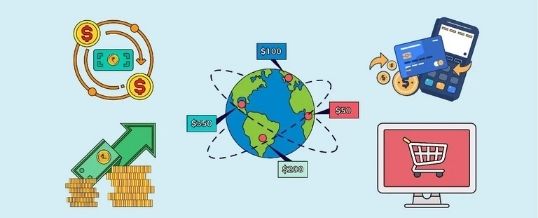
Europol estimates that more than $8.46 trillion is held in offshore accounts globally with $1.69 trillion from within the European Union alone.
Europe's primary law enforcement agency, Europol, has published an investigation in response to the Pandora Papers report, which includes allegations ranging from corruption to money laundering and tax evasion.
Europol’s report has underlined the worrying revelations in the Pandora Papers that hundreds of politicians have been benefiting from the secrecy of offshore tax havens, alongside criminal organizations, terrorists and tax evaders.
According to Europol’s estimation, the total amount of wealth held in offshore accounts globally is about 7.5 trillion euro ($8.46 trillion) while the share of the European Union is 1.5 trillion euro (about $1.69 trillion). This money represents over 9 percent of global Gross domestic product (GDP).
Furthermore, the estimated revenue loss for the European Union in 2016 was 46 billion euros ($51.9 billion) as a result of international tax evasion.
Money laundering
Beyond tax concerns, “offshore companies play a key role in money laundering schemes involving organized crime and are often used to hide the true origin of the funds. Money laundering sustains a complex and sophisticated criminal economy throughout the European Union,” the report said.
Europol said the scale and complexity of money-laundering activities affecting the European Union were previously underestimated.
“Professional money launderers have established a parallel underground financial system to process transactions and payments that is isolated from any legal financial oversight mechanisms. This parallel system ensures that the criminal proceeds cannot be traced,” the report continues.
The report said criminals directly control or infiltrate legal business structures for their criminal activities which gives them a facade of legitimacy and helps to evade prosecution.
It is estimated that more than 80 percent of criminal networks are active in the European Union’s legal business structures while half of all criminal networks set up their own legal business structures or infiltrate businesses at a high level.
Legality
The abuse of legal businesses could be long-term, temporary or on occasion.
Using layers of legal business structures to hide the identity of the benefactors “ is concealed further by one of the individuals being based in an offshore location.”
There are several reasons for beneficial ownership such as evading tax payments, hiding assets from others and to circumvent international sanctions imposed on them.
For example, a nominee director is generally a straw man who appears on the paperwork however the real owner orchestrates the operations. Nominee directors act as the face of the business, signing official documents, opening bank accounts
On the other hand, there are attorneys in such networks that make the identification of the beneficial owner as complicated and difficult as possible.
There are some anonymous couriers serving as a bridge between the beneficial owner and the nominee director to exchange instructions and documents.
Despite the effort to prevent the expansion of financial crimes by the European Union and its member states, they still have access to a huge amount of money - Europol estimates that more than 98 percent of criminal assets are not recovered.
To fight against the financial crimes, Europol suggested “a two-fold approach – one based on policy and legislation as well as a strong integrated operational response driven by international cooperation.”
The International Consortium of Investigative Journalists (ICIJ)
The Pandora Papers were obtained by the International Consortium of Investigative Journalists (ICIJ) and released through media partners including The Washington Post, the BBC and The Guardian.
The "Pandora Papers" are the latest in a series of mass leaks handled by the ICIJ, from LuxLeaks in 2014, to the 2016 Panama Papers.
They were followed by the Paradise Papers in 2017 and FinCen files in 2020.
The papers include almost 6.4 million documents, almost three million images, more than a million emails and almost half-a-million spreadsheets that expose hidden wealth, tax avoidance and money laundering by prominent individuals and politically exposed persons (PEPs).
JAN
2022

Table of Contents